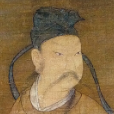Search the Community
Showing results for tags 'acceptance'.
Found 5 results
-
Hi All, I would to ask you on how is it possible for you to accept futile situations where you have to follow or do everyday a task that you think it is useless or you can do it in a better and more efficient way ? Example: being told that to go from A to B. but do that you should go from A to C then to B. So many times accepting such situation creates self hate since it feels like you are abusing yourself by accepting such tasks and abusing your intelligence. My question is how do you accept doing something not logical and repeat it everyday without getting angry or sad for doing it ? But also without feeling that by accepting and doing this, you are abusing yourself and your intelligence. Thanks.
-
108. When the Taoist sage Lai was on the verge of death, another sage asked him, "Great is the Maker of Things! What will become of you now? Where will he send you?" Lai replied, "A child who obeys his father and mother will go wherever they tell him to go -- east, west, south, north. Yin and yang, the elements of nature, are they not to a man like a father and mother? If I were not to obey them now that they have brought me to the point of death, how wayward I should be. They are not to be blamed. The great earth burdens me with a body, forces upon me the toil of life, eases me in old age, and calms me in death. If life is good, death is good also. If an ironsmith were casting metal and the metal were to jump up and say, 'Make me into the best of all swords!' the ironsmith would regard it as a bad omen. Now that my human form is decomposing, were I to say, 'I want to be a man! Nothing but a man!' the Maker of Things would think me most unworthy. Heaven and earth are a great forge and the Maker of Things is a master ironsmith. Can the place he is sending me to be the wrong place?" pp. 141-142 Graceful Exits How Great Beings Die 1997 Sushila Blackman
-
My friend’s nine year old daughter told me my teeth were brown. “Yes, they are.” I replied. Then she told me about the bluebirds living in her yard.
-

How to not Hate but Love and Enjoy Sorrow (negative feeling)?
Shad282 posted a topic in General Discussion
I have been coming to a conclusion that, running to meditation or any other "healing" techniques is just another way for the mind to escape what is and build a resistance to it, which win turns creates persistence. So, my conclusion seems to be going toward loving and enjoying what is even if it was negative as much as sorrow, which will allow us to experience it, and thus, there is no resistance. and maybe it may heal the permanent reaction to the memory that is causing sorrow and such. Please, don't throw concepts like (accept what is, allow, let go), please, provide explanation in terms of how to, what state of mind, or a feeling state that is needed to reach a Genuine feeling of loving and joy, not just a fake one that is like: "oh i love you, i'm enjoying this" but deep down we hate it soo bad and want to be positive. And please avoid techniques that are used to make us focus on something else to feel happy and joy as a result of escaping the negative feeling and ignoring it. Im looking for something that would dive deep into that feeling and embody it to love it and enjoy it. Thank you!- 29 replies
-
- 5
-

-
- meditation
- healing
-
(and 2 more)
Tagged with:
-

Wu Wei: A quick and dirty experiment with the 8-legged essay
nestentrie posted a topic in Daoist Discussion
I came across the 8 legged essay on wikipedia some time back and have been wanting to try my hand at it. My topic is Wu Wei. I'm not exactly some expert on Wu Wei, sometimes struggling greatly to understand the context in which it is oftentimes used, but I thought I'd have a go of putting down some of my ideas on it. The essay, like the thread title suggests, is really kind of 'dirty' (and short!). I could have spent more time trying to understand how the essay is supposed to be composed (and lengthening the thing to provide more entertainment and or depth), but I learnt a lot trying to write it. If I find a better description than wikipedia offers, or come across examples of 8 legged essays elsewhere that show the form how it's supposed to be, i'm sure I'll be looking at them with an eye to improve my understanding. With all of it's various problems intact; here it is. ------ WuWei is the maintenance of what is easy with the understanding that once one should have to disagree with a course of action, it could prove difficult afterwards. Maintenance is also the servicing of what one has --and not anything one doesn't have. "(It is the way of the Tao) to act without (thinking of) acting; to conduct affairs without (feeling the) trouble of them; to taste without discerning any flavour; to consider what is small as great, and a few as many; and to recompense injury with kindness." From <http://sacred-texts.com/tao/taote.htm> Agreeing with the course of another's behaviour seems easy to believe in; that another person's business is their own, and on that account to be considered of little trouble, marks the one who makes light of misgiving. Terror, or the great dread that one day one's own business should prove difficult seems of little account also. Honesty is as an honest person does and so earnestness can be forgotten about just as easily as one is distracted by new gossip or interesting tidbits on buzzfeed. To agree that a given course would always be easy is to fail to inspect it on its merits. To agree that a thing has merit, yet no possibility of demerit, is to fail to be in wonder about how it achieves merit. Disagreeing about the merit or demerit oneself may or may not have might be the clue. Disagreeing that one should always find ease in one's own activity is where earnestness and honesty may meet. Accepting that others also may find difficulty or ease depending on their honesty and earnestness is the chief capacity of wonder. Wonder, however, is not on its own merely wanting to believe. Here is a central question: if I were to gift you something of great worth, could you come about another of its kind without any difficulty? If giving is easy, is great worth always difficult? Would the gift I gave you still be worth anything if you could easily take it for yourself from elsewhere? Honesty in light of what one already has is sure to be easy and bring no discomfort; wonder at another's act of giving to you neither should deprive you of anything. If all I had to be was honest, how would I treat a gift of little worth that was still very much given in earnest? WuWei, is about obeying -- while not pandering and without misgiving -- the value of ease and satisfaction. Wu Wei is how things come from being tiny and insignificant, with their roots in the distant past, to how they yet come easily to be in the present. This is the chief wonder of WuWei, and the foundation upon which we come to accept anything that is hard. Having while not valuing is not having at all. Valuing without acceptance is to not believe in value and thus never preserve it. To act outside WuWei is to place oneself into the burdensome position of not being able to accept anything.


